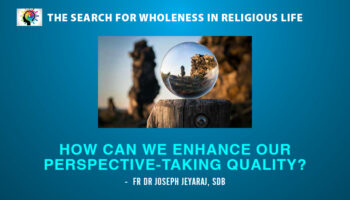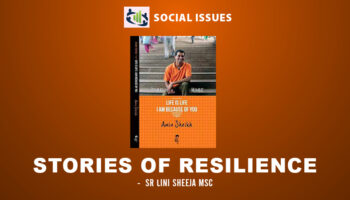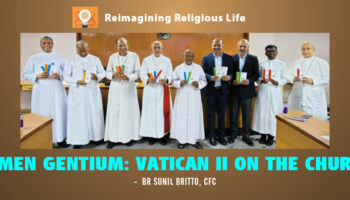We must know the evolution of the speed of communication: When Columbus discovered America, it took seven months for the news to reach the queen of Spain. When Lincoln was killed, it took seventeen weeks for the news to reach the elite of London and Paris. When Armstrong landed on the moon, it took a few seconds for the news to reach the earth. When the Gulf war broke out (1991), we not only heard about it, but saw it actually happening.
Christianity has taken every means of communication seriously in the past. When Guttenberg invented the printing press, the first book printed in it was the Bible. When the radio was invented by Marconi, one of the first broadcasting stations established by him was the Vatican Radio, which even today is a formidable voice in the air. We need to see the value in these vehicles for the prophetic ministry at the service of the Word. The Pope has said: “The Internet is the best forum for evangelization.” We need to rethink our way of teaching catechism and preaching the homilies in this context. Using the media, we can tell the whole world about the love of God.
But today a serious problem faced in our communities is the usage of modern devices of communication. Two decades ago, the superior of the community kept an absolute control over the situation. Everyone got permission to make a phone call. The world ended within the boundaries of the convent and the mission area. Probably the rest of the time was spent in prayer. With the arrival of the current means of communication, this has become a history of the past. A general change in the behaviour of the religious men and women is slowly entering into their daily life. To name a few trends that are affecting them: the common sickness of sending missed calls, sending SMS before sunrise: it may be an inspirational quote but it disturbs due to its untimely delivery.
The use of the mobile and the Internet has opened a new face to religious life. If it moves in this pace, in a decade, religious life will be re-defined. It has strongly introduced a new concept that every individual is responsible for his/her own life, so self-restraint in a new form has to be learnt. It has reduced the role of the superior to the first among equals. In the past, nuns lived in unquestionable submission to the authorities. But today, easy accessibility puts us in direct and constant contact with our family members and friends. We might witness a new definition to religious life within the duration of a decade. We have to make a new formation curriculum to deal with the newer realities of life. We have to start practical training for positive use of the mobile and social net-working. The time also demands a special training for personal freedom, self-restraint and managing mature inter-personal relationships. Personal maturity and religious spirit will help the religious as to when to use them, how long to use them, what to watch and whom to contact, etc.
What is ministry today all about? People or being busy with devices? Obviously much of the paper work on computers is aimed at helping people. But too often, there is little time or energy left for people at the end of the exhausting efforts of accomplishing those tasks. Modern means of communication creates a barrier between us and the opportunity of touching peoples’ lives.
Today what is required is communication through personal presence and witnessing life. The humble, inexpensive means of communication used in the good old days or in new and creative ways can still be the most effective ways of conveying the Gospel. Though Jesus could heal from afar, he preferred to walk to Lazarus’ tomb, Jairus’ home and Zacchaeus’ house, to touch and heal them. Even when he was tired (cf. Lk. 4.40) in the evening, he put people before other work, touched everyone and blessed them. He considered people not as interruptions but opportunities. The focus of our entire ministry is finally people. People need someone who can be seen and touched in the midst of a situation of suffering. Our absence must be felt like Jesus’ absence in Martha’s house when Lazarus died. (cf. Jn.11.21). Our Holy Father Pope Francis is doing this mission through his presence and touch.
Gospel values cannot be effectively communicated through gadgets, but through communities that live them amid gloom and doom, thus keeping in human hearts the hope of a fuller, richer life. Such a community communicates itself. Jesus said, “I have set you an example” (Jn: 13:13). Gandhi wrote once, “My life is my message.”
The unedifying life of some priests and religious is one of the reasons for people leaving the Church and joining other denominations. Our unavailability and our being busy with the devices cause scandal to them. Modern gadgets are God’s gifts given to us to speed up our work and make us more available to our people in our mission centres. Do we really use them for doing good, or let them take us away from the people who need us?
Questions for Reflection/sharing:
- Have mobile phones and social media brought people closer together or taken them away from one another?
- Since they can do both, what has been the greater impact according to you?
- In your own case, are these gadgets making you more available for service, or taking you away from the people who need you?
- Do I use these gadgets and technologies more for my entertainment or for doing good?
- Is there more unity and closeness in families and religious communities because of phones and social media, or greater distance?
- Are today’s younger people becoming better at relationships or worse?
- How far should a minor’s use of smart phones and social media be controlled by parents and school authorities?
- As far as you know, do most people access good (instructive, edifying, useful) material on these media, or harmful contents?
- A smart phone or social media can teach us about fitness and exercise. Do most people use them to keep more fit, or spend more time on them and neglect exercise and fitness?
Real love and friendship with people we know is very different from “contacts” on social media. How many genuine friends do you have? How many do you really care about? Is your use of smart phones and social media making you more human, or cutting you off from real people?

To subscribe to the magazine Contact Us





